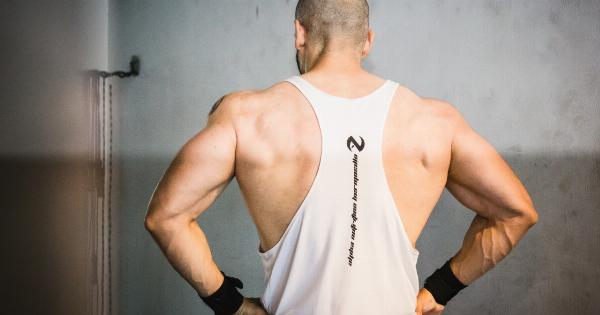Building muscle is no easy feat, it requires dedication, commitment and patience. But no matter how much time you spend in the gym, getting the right nutrition is just as crucial for optimal muscle growth and repair.
Here are the top foods that should be on your plate if you’re looking to pack on muscle.
Lean Meats
Lean cuts of meat such as chicken, turkey, beef, and pork are excellent sources of protein that help to build and repair muscle tissue.
Not only are they rich in protein, but they also contain heme iron which is better absorbed and utilized by the body compared to non-heme iron found in plant-based foods. These meats also provide B-vitamins such as B6 and B12 which contribute to energy metabolism and are important for nerve and red blood cell function.
Fish
Fatty fish such as salmon, tuna, and mackerel are packed with protein and omega-3 fatty acids. Omega-3s are anti-inflammatory and can reduce exercise-induced muscle damage and soreness.
Fish are also a great source of vitamin D which is essential for bone health and muscle function.
Eggs
Eggs are one of the most nutrient-dense foods on the planet. They are rich in high-quality protein, healthy fats, and vitamins and minerals such as vitamin D, choline, and selenium.
The yolk also contains a compound called leucine which plays a key role in muscle protein synthesis.
Quinoa
Quinoa is a versatile grain that is not only a good source of complex carbohydrates but also contains all nine essential amino acids, including leucine.
It also has a low glycemic index which means it provides sustained energy without causing spikes in blood sugar levels.
Cottage Cheese
Cottage cheese is a great snack that is low in fat and high in protein. It’s also a good source of casein protein, which is slow-absorbing and can provide a steady stream of amino acids to the muscles.
This makes it a great option for a pre-bedtime snack as it can prevent muscle breakdown during the night when you’re fasting for several hours.
Sweet Potato
Sweet potato is a great source of complex carbohydrates and fiber which can provide sustained energy throughout the day. It’s also rich in vitamin A and potassium which can help reduce muscle damage, aid in recovery and prevent muscle cramping.
Beans and Legumes
Beans and legumes such as lentils, chickpeas, and black beans are high in both protein and fiber. They also contain complex carbohydrates that provide a steady stream of energy without causing spikes in blood sugar levels.
Additionally, they are rich in iron and magnesium which are crucial for optimal muscle function.
Greek Yogurt
Greek yogurt is a nutrient-dense food that is high in protein and low in fat. It’s also a good source of calcium which is important for bone health.
Greek yogurt contains casein protein which is slow-absorbing and can help to prevent muscle breakdown.
Nuts and Seeds
Nuts and seeds such as almonds, cashews, and pumpkin seeds are a good source of protein, healthy fats, and fiber. They also contain vitamins and minerals such as vitamin E which can act as an antioxidant and prevent muscle damage.
Spinach
Spinach is a green leafy vegetable that is rich in iron, magnesium, and potassium. It’s also a good source of vitamin K which is important for bone health.
Spinach contains nitrates which can help improve muscle function and endurance by increasing blood flow and oxygen delivery to the muscles.
Conclusion
Building muscle requires a combination of resistance training and proper nutrition. Incorporating these muscle-building foods into your diet can help provide the nutrients needed for optimal muscle growth and repair.
Remember to also drink plenty of water and get adequate rest to allow your body to recover and rebuild muscle tissue.






























